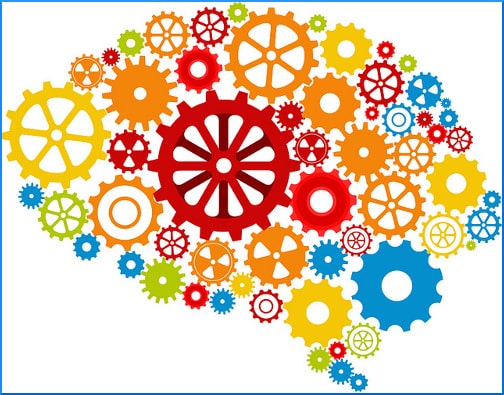
Over the past few years, it has become glaringly apparent that the community of creatures we call the gut microbiome can affect what we fondly think of as “our” minds. The bugs are impacted by, and react to, every medication that we ever ingest. They crank out chemicals that affect our brains and bodies as effectively as pharmaceuticals. Just like some street drugs, the bugs can push us into doing insane things, against our own best interests. There is a lot going on in our digestive tracts.
A 2012 report spoke of how the microbiota could “contribute to diseases ranging from inflammation to obesity” and added that brain function and behavior were also involved. It named anxiety, mood, cognition, and pain as areas susceptible to influence.
Psychotropic drugs, like atypical antipsychotics, were recognized as having undesirable side effects — such as promoting obesity. New discoveries about the microbiome’s power led, among other things, to speculation about whether the bugs could mitigate the harmful aspects of pharmaceuticals.
Speaking of psychoactive drugs, in the same year a paper was published on “how the endocannabinoid system, intestinal microbiota and the brain-gut axis are involved in the regulation of energy balance and the development of obesity-associated systemic inflammation.” N.L. Cluny, R.A. Reimer, and K.A. Sharkey made this bold statement:
Through direct and indirect actions throughout the body, the endocannabinoid system controls the development of obesity and its inflammatory complications.
The bugs collaborate in producing chemicals that can alter the brain’s biochemistry just like meds prescribed for patients with mood, anxiety, and depression disorders; or, for that matter, party drugs and psychedelic substances taken for inner exploration. LSD can affect how people feel, think and act — and so can the chemicals produced by the bacteria in our intestines. Jan Birch wrote:
The same substances used by our neurons to communicate and regulate mood, like dopamine, serotonin and gamma-aminobutyric acid (GABA). These, in turn, appear to play a function in intestinal disorders, which coincide with high levels of major depression and anxiety.
Just like a drug, “these bacteria can influence our perception of the world and alter our behavior.” In the same way that a drug experience can have a lasting effect for good or ill, researchers have shown that negative events like childhood trauma, combined with actions of the microbiome, can have far-reaching and even life-long consequences.
Susie Neilson related how a study of students with Irritable Bowel Syndrome and healthy volunteers discovered that…
[…] our guts may harbor evidence of difficult life experiences many years after the fact, changing everything from how we digest food to how we process stress. In fact, these changes in our “second brain” may substantially alter the structure of our first, creating a feedback loop between the two.
Dopamine and serotonin are mood-altering drugs manufactured by our own bodies. That’s the good news, but the bad news is who is in charge of production. Often, the microbiota run the show. They are so sneaky, they will change our taste buds to like the things that they like.
Consider for a moment how much we cherish our individuality, which is made up of our own particular combinations of feelings, thoughts and actions. Jane Birch says:
Intriguingly, when gut bacteria is swapped between two different strains of mice, it can lead to complete personality changes. According to microbiologist Mark Lyte, “If you transfer the microbiota from one animal to another, you can transfer the behavior.”
Your responses and feedback are welcome!
Source: “Mind-altering microorganisms: the impact of the gut microbiota on brain and behaviour,” NIH.gov, October 2012
Source: “Cannabinoid signalling regulates inflammation and energy balance: the importance of the brain-gut axis,” NIH.gov, 2012
Source: “Discovering the Word of Wisdom: Food Cravings, Obesity, Mood, and Our Gut,” LDSmag.com, 02/22/16
Source: “Gut Feelings–the ‘Second Brain’ in Our Gastrointestinal Systems,”
ScientificAmerican, 05/01/16
Source: “A Traumatic Experience Can Reshape Your Microbiome,” TheCut.com, 06/01/17
Photo credit: jrduboc via Visualhunt/CC BY

 FAQs and Media Requests:
FAQs and Media Requests: 











